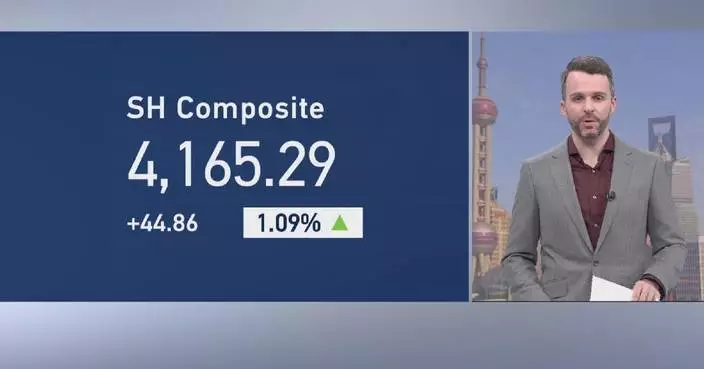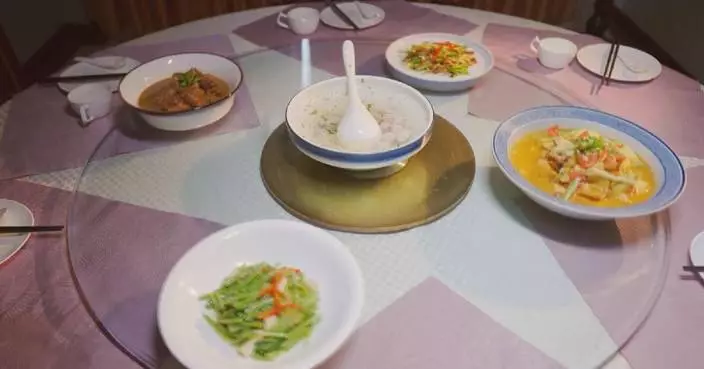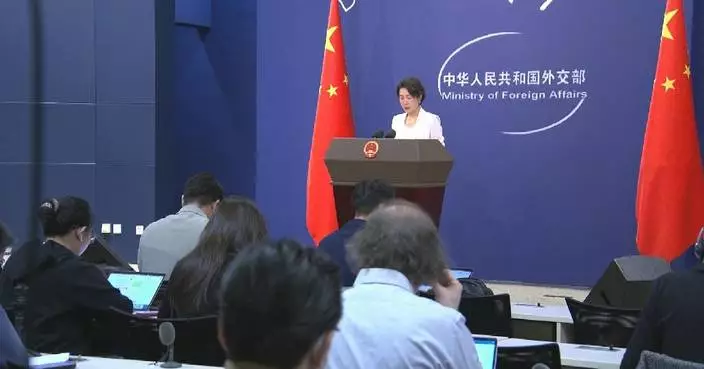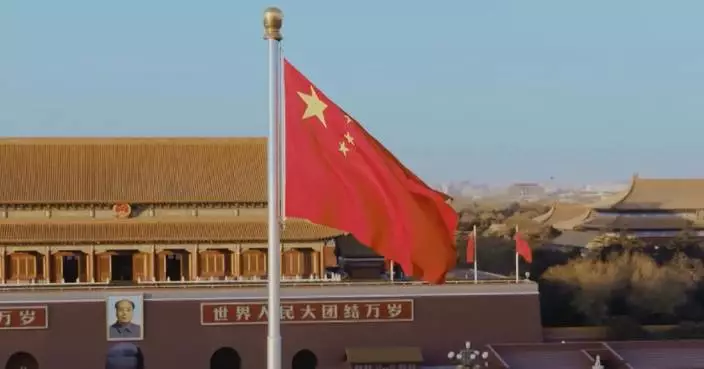U.S. tariffs on imported steel products are imposing threats on German steel producers' exports to the American market, with the EU claiming retaliatory tariffs on 26 billion euros (about 28 billion U.S. dollars) worth of U.S. goods in response.
The European Commission announced the potential countermeasures on Wednesday, in response to the expiration of prior exemptions and the reinstatement of 25 percent tariffs on all steel and aluminum imports by the U.S.
According to the European Union Industry Association, around 4 million tons of EU steel were exported to the U.S. in 2023, with a quarter of that originating from Germany. The Benteler electric steel mill in Lingen, northwest Germany, which produces raw pieces of steel from scrap metal, is among the companies feeling the impact.
"We produce approximately 650,000 tons of steel each year. That means we make over 2,000 tons each day," said Andreas Stadtherr, Lingen Plant Manager, Benteler Steel.
These steel billets are then transported by train to other Benteler facilities in Germany, where they are transformed into hot-rolled and cold-drawn tubes for various industries across Europe, including automotive, energy, and construction. Some products are even sent to the company's tube plant in Louisiana.
"Tariffs will of course affect the products that we supply from Europe, i.e., the steel that we supply from Lingen to the U.S.," said Thomas Michels, CEO of Benteler Steel.
Even before the tariffs were enacted, the German steel industry was grappling with rising energy costs, intensifying competition, and expenses related to decarbonization, all of which were squeezing profit margins. U.S. tariffs risk distorting the market further, as steel that would have been destined for the American market is now being diverted to other regions, including Europe.
"Many suppliers who currently supply the USA from Asia, from China will look for new markets and will try to supply more products to Europe. I think we should enter into talks with the US to find a good solution for the EU, Germany and the US. The EU must take action and set up certain border zones to prevent dump steel from coming into the EU," said Michels.
While the European Commission's announcement of counter-tariffs on U.S. goods indicates a firm stance, it also expressed a willingness to negotiate. This position resonates with many German steelmakers, who argue that the tariffs are counterproductive even for the U.S. steel industry.
"If you consider that the U.S. imports up to 21 million tons of steel, it won't be possible to produce these 21 million tons in the U.S. because the capacity simply doesn't exist," said Michels.
Some analysts predict that rather than protecting the U.S. steel industry, these tariffs may ultimately increase costs for American consumers.
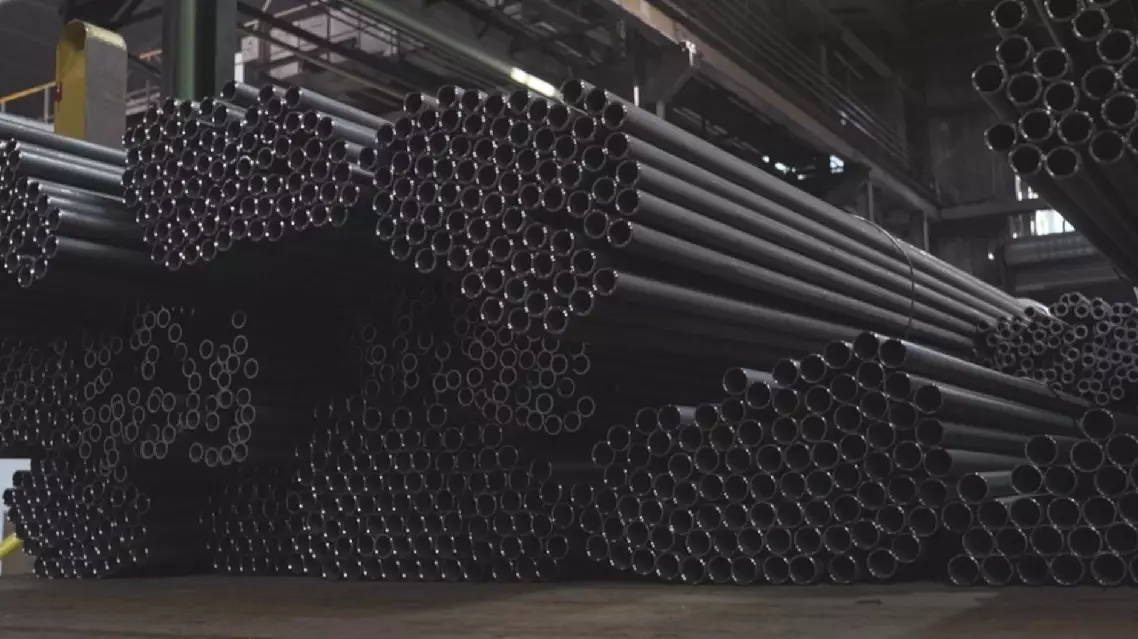
US steel tariffs threaten German steel exports, spark EU retaliation
Xi Jinping, general secretary of the Communist Party of China (CPC) Central Committee, on Monday called for advancing full and rigorous Party self-governance with higher standards and more concrete measures.
Xi, also Chinese president and chairman of the Central Military Commission, made the remarks while addressing the fifth plenary session of the 20th CPC Central Commission for Discipline Inspection (CCDI) in Beijing.
Xi urged efforts to confine power to an institutional cage in a more well-conceived and effective manner, and press ahead with the anti-corruption fight with a clearer understanding and stronger resolve, thus providing a strong guarantee for achieving the goals and tasks of the 15th Five-Year Plan period (2026-2030).
Xi pointed out that in 2025, the CPC Central Committee had intensified efforts to improve Party conduct, uphold integrity and combat corruption, achieving notable results. Xi said efforts were made to maintain a tough stance against corruption and eradicate the breeding grounds and conditions for corruption.
Xi emphasized that implementing the major decisions and plans of the CPC Central Committee is a fundamental requirement for upholding its authority and its centralized, unified leadership.
Party organizations at all levels and Party members and officials should implement the decisions and plans of the Fourth Plenary Session of the 20th CPC Central Committee with concrete actions, he said.
Xi noted that confining power to an institutional cage is an important task in exercising full and rigorous Party self-governance.
He stressed that all are equal before the law and regulations, that compliance with them admits no privilege, and that enforcement of the law and regulations allows no exception.
Xi underscored that the fight against corruption is a major struggle that the Party cannot afford to lose, and must never lose.
He said that the current anti-corruption situation remains grave and complex, and that the task of eliminating the soil and conditions breeding corruption remains arduous. Xi added that it is essential to maintain a firm stance to leave corrupt officials with no place to hide.
Stressing the need to stay attuned to new trends and features of corruption, Xi urged efforts to innovate methods and approaches, promptly detect and accurately identify corrupt practices, and effectively address all forms of corruption, so as to continuously enhance the penetrating power of anti-corruption efforts.
He also urged strengthening coordination among all forms of oversight to advance integrated governance through whole-process collaboration, and called for sustained efforts to forge a loyal, upright and responsible disciplinary inspection and supervision force that dares to and is good at fighting against corruption.
Members of the Standing Committee of the Political Bureau of the CPC Central Committee Li Qiang, Zhao Leji, Wang Huning, Cai Qi and Ding Xuexiang attended the meeting.
Li Xi, a member of the Standing Committee of the Political Bureau of the CPC Central Committee and secretary of the CCDI, presided over the meeting. On Monday afternoon, on behalf of the standing committee of the CCDI, Li also delivered a work report.
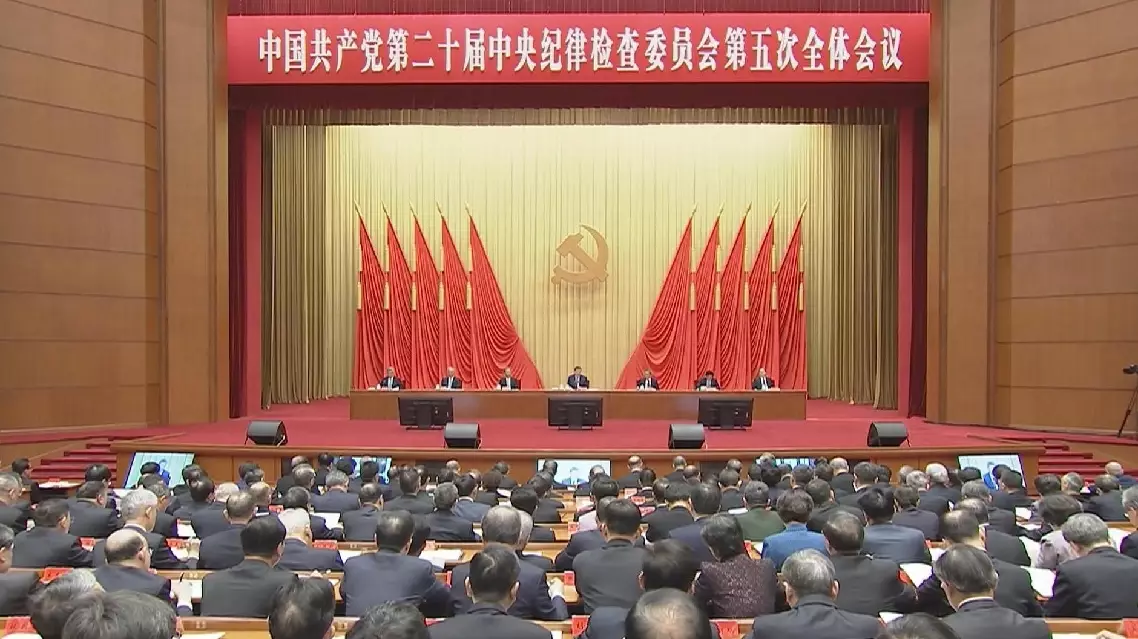
Xi urges advancing Party self-governance with higher standards, more concrete measures




